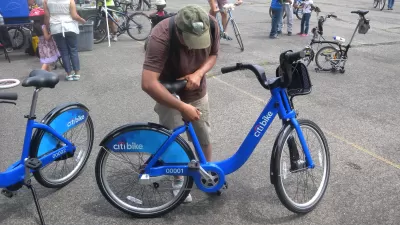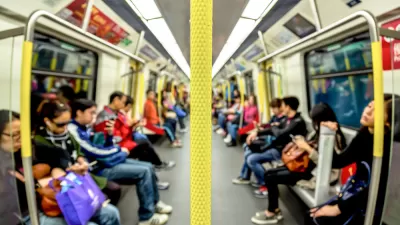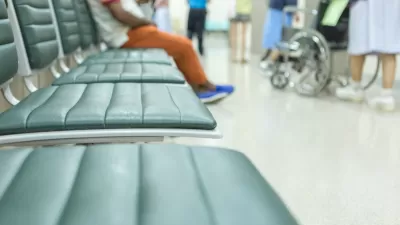Experts say a deep understanding of communities and access to rich local data are necessary for improving transit service for all segments of society.

Since its launch ten years ago, users have taken over 60 million rides through New York's Citi Bike program. But demographic data shows the system "has been used largely by men," writes Skip Descant, indicating a disconnect between Citi Bike riders and New York City's general population. Sarah M. Kaufman, associate director of the New York University Rudin Center for Transportation Policy and Management, says "it’s important to understand, study and advocate for equity in transportation, since many systems don’t do a good job of serving everyone in a community."
"'Women overwhelmingly feel unsafe or experience harassment or assault on public transportation,' said Kaufman.'“Those numbers are often much worse for women of color, women who are disabled and trans women.'" With transportation equity becoming a "central goal" for many transportation agencies, experts argue that "a deep understanding of communities and access to rich data" are essential to making progress toward more equitable transportation systems. "Without enough data, one can't know who's able to use a system effectively and how they use it. Kaufman suggested society needs well-established data standards that pick up on the nuances of how people travel" in order to understand how to equitably serve them. Understanding travel patterns and transportation needs also requires deep engagement with local communities that goes beyond public meetings to establish trust.
FULL STORY: Experts: Data, Community Trust Needed for Equitable Transit

Alabama: Trump Terminates Settlements for Black Communities Harmed By Raw Sewage
Trump deemed the landmark civil rights agreement “illegal DEI and environmental justice policy.”

Study: Maui’s Plan to Convert Vacation Rentals to Long-Term Housing Could Cause Nearly $1 Billion Economic Loss
The plan would reduce visitor accommodation by 25% resulting in 1,900 jobs lost.

Planetizen Federal Action Tracker
A weekly monitor of how Trump’s orders and actions are impacting planners and planning in America.

Waymo Gets Permission to Map SF’s Market Street
If allowed to operate on the traffic-restricted street, Waymo’s autonomous taxis would have a leg up over ride-hailing competitors — and counter the city’s efforts to grow bike and pedestrian on the thoroughfare.

Parklet Symposium Highlights the Success of Shared Spaces
Parklets got a boost during the Covid-19 pandemic, when the concept was translated to outdoor dining programs that offered restaurants a lifeline during the shutdown.

Federal Homelessness Agency Places Entire Staff on Leave
The U.S. Interagency Council on Homelessness is the only federal agency dedicated to preventing and ending homelessness.
Urban Design for Planners 1: Software Tools
This six-course series explores essential urban design concepts using open source software and equips planners with the tools they need to participate fully in the urban design process.
Planning for Universal Design
Learn the tools for implementing Universal Design in planning regulations.
Caltrans
Smith Gee Studio
Institute for Housing and Urban Development Studies (IHS)
City of Grandview
Harvard GSD Executive Education
Toledo-Lucas County Plan Commissions
Salt Lake City
NYU Wagner Graduate School of Public Service





























